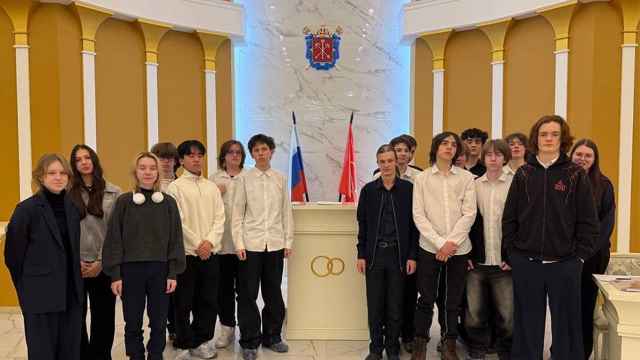
Alexander Ksenofontov
Senior Lawyer
LEVINE Bridge law firm
Recently there have been more frequent violations of labor rights committed by employers of not only Russian workers, but of foreign citizens working in Russia as well.
In this article we want to address the issue and the manner by which Russian legislation provides foreign citizens with some measure of protection from an employer violating his or her labor rights.
In accordance with Article 62 of the Constitution of the Russian Federation, foreign citizens are extended the same rights as Russian citizens, except in instances that have been established by federal law or by an international treaty to which Russia is a signatory member. And in accordance with Article 11 of the Labor Code of the Russian Federation, its norms and standards apply to the employment relationship of foreign citizens who are legally employed on the territory of the Russian Federation.
In this regard, foreigners who are legally employed in Russia can avail themselves of all legal means provided to them by Russian legislation to defend their rights as workers.
According to Article 352 of the Labor Code, everyone has the right to protect their rights and freedoms by all possible means not prohibited by law.
Basic means to defend one's labor rights and freedoms are:
- employees being aware of how they can best defend their labor rights, "self-defense";
- employees being engaged with professional trade unions as a means to protect their labor rights;
- state regulation and control (supervision), ensuring that all comply with established rules and norms of labor law and other legislation that pertains to labor law;
- judicial protection, defending one's labor rights in court.
As a means where by which an employee can protect his/her own labor rights, the employee can inform the employer or immediate supervisor in written form of the employee's refusal to carry out duties that were not included within the terms of their employment agreement as well as refuse to carry out tasks that directly threaten life or health. An employee can also withhold services in the event an employer fails in the delivery of payment of salary for more than 15 days. During the period of suspension from work, an employee has the right to be absent from his or her place of employment for the duration of the suspension.
Meanwhile it is necessary to note that in certain instances, as is provided for by federal law, an employee cannot withhold services. This generally applies to, for example, workers in organizations that serve particularly dangerous types of functions, workers who perform duties in the energy-resource sector, heating, provision of water services, gas, communications, and emergency and medical care providers.
A foreign citizen can become a member of a Russian professional trade union and enjoy the protection it provides. Russian professional trade unions can have influence over employers, especially in instances where they are an international trade union and the employer is an international company that values its image and reputation on international markets.
The main Russian authoritative branches that regulate and monitor compliance of labor laws are the Prosecutor's Office and the Federal Labor Inspectorate. In the event of a violation of labor legislation by the employer, an employee can file a complaint against his or her employer to these authoritative bodies. The Prosecutor's Office and the Federal Labor Inspectorate have the right to carry out an investigation as to the merit of the case and then make a binding decision to the employer including reinstating an employee who was wrongfully dismissed and awarding the employee for wages in arrears. Even more so, these authoritative branches can initiate proceedings against the employer and its administrators for liability of violations of labor legislation.
A complaint filed against an employer for violation of labor law to any of these authoritative branches does not carry any time restrictions or statute of limitations. An employee can file a complaint regardless of how much time has passed since the moment of the violation.
Finally, in defense of one's rights, a foreign citizen can seek judicial protection via a Russian court in the relevant jurisdiction.
In contract to the Prosecutor's Office and the Federal Labor Inspectorate, if pursuing a legal complaint in court, an employee must do so within a certain time deadline.
An employee has the right to file a complaint against an employer in court within three months from the date he/she knew or should have known of the violation. If the subject of the complaint is a claim for lost wages, then the three-month period in which to file a complaint begins from the date of dismissal of the employee by the employer. In disputes related to wrongful dismissal, the former employee can file a complaint in court within one month from the date of either when he/she received notification of dismissal or from the date of issuance of the employment record file. In the event that time deadlines are missed for valid reasons, they can be restored by the courts.
A complaint filed by an employee in court is to be filed in the jurisdiction of the employer, its address of federal registration, which is sometimes its legal address.
When making a complaint in court, the employee is exempt from payment of state fees and other court related costs.
In a complaint filed in court, a foreign citizen has the right to the assistance of a translator in order to have the opportunity of participating in the proceedings in his/her own language.
In the event of wrongful dismissal, an employee can expect to be restored to his/her previous position and recovery of lost wages during the period of forced absence. Any violation of labor rights can serve as a basis for reparations from the employer for moral damages. In addition to that, a foreign employee who wins an award against the employer in court, at his/her request can be compensated for costs associated with translator's services, travel and living expenses, as well as for legal fees (lawyers) and other related expenses that were incurred in pursuing legal action.
A Message from The Moscow Times:
Dear readers,
We are facing unprecedented challenges. Russia's Prosecutor General's Office has designated The Moscow Times as an "undesirable" organization, criminalizing our work and putting our staff at risk of prosecution. This follows our earlier unjust labeling as a "foreign agent."
These actions are direct attempts to silence independent journalism in Russia. The authorities claim our work "discredits the decisions of the Russian leadership." We see things differently: we strive to provide accurate, unbiased reporting on Russia.
We, the journalists of The Moscow Times, refuse to be silenced. But to continue our work, we need your help.
Your support, no matter how small, makes a world of difference. If you can, please support us monthly starting from just $2. It's quick to set up, and every contribution makes a significant impact.
By supporting The Moscow Times, you're defending open, independent journalism in the face of repression. Thank you for standing with us.
Remind me later.





